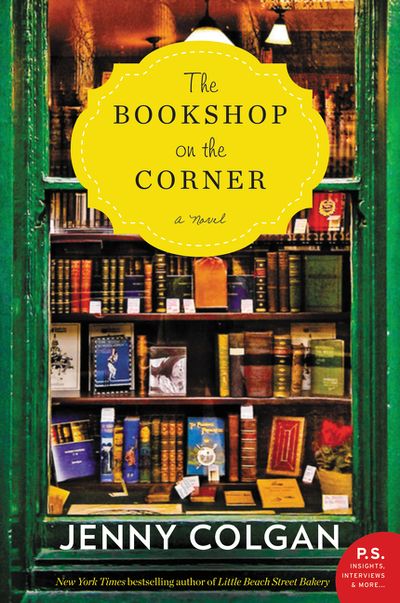The Bookshop on the Corner, Jenny Colgan. New York: William Morrow, 2016.
Summary: Nina Redmond loses her librarian job, pursues a dream of a mobile bookshop, ending up in the Scottish Highlands, bringing joy to a cluster of small towns in her Little Shop of Happy-Ever-After, while longing for her own happy-ever-after.
I’m a sucker for books on books and so didn’t notice that this is categorized as women’s fiction, and romance, two categories I tend not to read. What is curious-er is that I actually liked it, for the most part. It was a nice break from some other heavier reads, and explored some themes I found interesting.
The story is that Nina Redmond, a librarian in Birmingham, is about to lose her job in a library consolidation. In an outplacement workshop exercise, complete with all the cliche’s of modern corporate life, she is invited to share her own dream job. And she finally admits that it is to own her own bookshop, maybe a tiny one, where she can help match up people with books they will love. The dream lingers and takes the shape of a mobile bookshop in a van. She finds the van–in rural Scotland–and finally, with the help of villagers, persuades the owner to sell it to her. They hope she will bring her little bookshop to their town, and after being turned down for vending and parking permits in Birmingham, and a near-disaster encounter with a train, she decides to stay. At last her book-beleaguered roommate Surinder will get her and her books out of the apartment.
With the help of the train engineer, a Latvian emigre by the name of Marek, boxes and boxes of books are transported from Birmingham to a train crossing near her home at Kirrinfief. She finds a beautiful converted barn to rent from a grumpy, divorcing sheep farmer, Lennox. Surinder comes up and paints the name she chooses for her little bookshop, The Bookshop of Happy-Ever-After on her van while she fits out the inside. The bookshop is a huge success and villagers who haven’t read a book in years are matched up with books they love. Some admit that when the libraries closed and no local stores were available, they just stopped reading. There is one delightful scene where she looks around the village, and sees people reading everywhere. The village embraces her and she finds she cares for them more than she would have thought–a teen girl Ainslee and her brother Ben, who are facing some trouble at home, a shopkeeper who has faced too many disappointments, and even the grumpy farmer, who she assists in delivering twin lambs that only she, with her small hands, could untangle inside the ewe.
Yes, it is a romance novel, an adult one in places. Nina strikes up this odd romantic relationship with the Latvian, Marek, who leaves books on a tree by the rail crossing for her, and she in return for him. They meet sometimes, and it nearly becomes something more. Yet, it is pretty clear to the reader that the real deal is Lennox and we all wonder what it will take to bring the two together. We wonder if Nina will find her own “happy-ever-after” or if these are just the stuff of fiction.
I loved the descriptions of the Scotland, the countryside, the short summer nights and the Northern Lights, the village life and festivals. More than this, I love the transformation that occurs both in Nina and in Kirrinfief and how books are the medium of that transformation. Nina discovers a calling in bringing people with little access to books together with books they love, books that broaden their horizons, or even books that are gateways for them into reading, as it was with Ben. In the process, we witness a village discovering what it had lost, settling for electronic media substitutes, and the joy of recovering what was lost and making the fabric of their life a bit richer. The contrast between Kirrinfief and Birmingham, with its hectic pace of life, shuttering its libraries and bookstores for an electronically mediated life, portrayed by her friend Griffin, who manages to keep his job in a technology-oriented thing called a library that has little to do with books.
None of this is heavy-handed, maybe a bit cliché at times, but an enjoyable page-turning read. This was a romance in more ways in one. Yes, there is the romantic element of Nina caught between the “puppy-eyed” Marek, and the gruff, angular Lennox. But there is also the romance of bookselling–the wonderful matchmaking work between books and their readers–as well as the practicalities of getting stock and making a living at it. More than that, we have the reminder in Nina’s rolling bookshop of how everything from Little Free Libraries to bookmobiles and libraries and village bookshops weave together to enrich the social ecology of a place.
